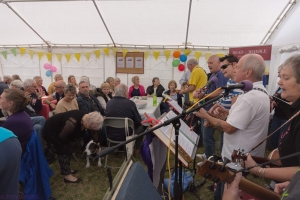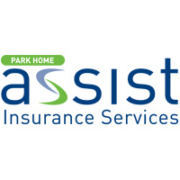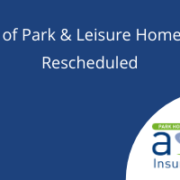We want to update you on Park Home Assist’s response to the global pandemic that is causing huge upheaval to the lives of all our policyholders, as it is for people throughout the world.
The World of Park & Leisure Homes Show in Ardingly was scheduled to take place from the 3rd – 5th April 2020. Due to the health advice regarding Covid-19 and the advice given by the government, the show has now been rescheduled to take place on the 21st – 23rd August 2020.
On the 21st January 2020, Park Home Assist Insurance Services won the Feefo Platinum Trusted Service Award, an independent seal of excellence that recognises businesses for delivering exceptional experiences, as rated by real customers.
On the 21st January 2020, Park Home Assist Insurance Services won the Feefo Platinum Trusted Service Award, an independent seal of excellence that recognises businesses for delivering exceptional experiences, as rated by real customers.
One lucky Park Home Owner won a luxury Christmas hamper, courtesy of Park Home Assist Insurance Services.
We launched another free Christmas prize draw in 2019 giving one lucky recipient the opportunity to win a luxury Christmas hamper. The prize draw was launched in December and we had an extremely large response, so thank you to everyone who entered. Submitting an entry was really easy, you simply had to go to the Park Home Assist website, fill in your details and submit the entry form, no purchase was necessary.

The week before Christmas a winner was randomly selected and notified of their winnings. Mr Jones from Berkshire was our 2019 Christmas prize draw winner and he was completely shocked to be the winner. We arranged a time suitable for Mr Jones so that we could deliver his luxury Christmas hamper. We love to put a smile on someone’s face just before Christmas and here is Mr Jones receiving his hamper, which we delivered to him in person at his Park Home in Berkshire.
We would like to thank everyone who took part in our Christmas prize draw and we hope you had a great Christmas.
This is a marketing article from Park Home Assist, multi award-winning providers of residential park home insurance. If you would like to speak to an advisor regarding insurance for your park home, please contact our friendly team in our Northampton office on 01604 946 796.
To stay up to date with similar topics like this, please like and follow us on Twitter, LinkedIn or Facebook.
For more information about any of our other insurance products, please choose your product of interest below:
- Car Insurance for Park Home Owners
- Mobile Home Insurance
- Holiday Lodge Insurance
- Static Caravan Insurance
- Holiday Home Insurance
- Motorhome Insurance
- Touring Caravan Insurance
- Boat Insurance
Published – 06/01/20
Householders need to be vigilant regarding roofers and other trades people who knock on your door uninvited.
 Park Home Assist Insurance Service recently sponsored the Westwood and Glendene Parks fundraising event, which took place in October. Westwood and Glendene Park is located in a quiet rural village on the edge of the New Forest National Park offering an ideal location for residential park home owners. We were approached by the park to see if we would like to get involved in their fundraising and we were extremely proud to be sponsoring this fundraising event which was to raise money for a defibrillator.
Park Home Assist Insurance Service recently sponsored the Westwood and Glendene Parks fundraising event, which took place in October. Westwood and Glendene Park is located in a quiet rural village on the edge of the New Forest National Park offering an ideal location for residential park home owners. We were approached by the park to see if we would like to get involved in their fundraising and we were extremely proud to be sponsoring this fundraising event which was to raise money for a defibrillator.
Westwood and Glendene Parks arranged a fun afternoon with great entertainment, a raffle and other great fun things to do that day, which were enjoyed by all. Attendees and park home owners at Westwood and Glendene park received one of Park Home Assist’s re-usable cotton bags, pens, notebooks and information about our tailored insurance policies for park home owners. We also donated a large Marks and Spencer hamper for the winner of the raffle prize.



The event was huge success and we are delighted to report that the park raised £1,500 for the defibrillator, which has now been ordered and will be installed on the park next month.
We are always keen to hear about events that are going on in your park and other great causes like this, so if your park is fundraising for a great cause, why not get in touch.
This is a marketing article from Park Home Assist, multi award-winning providers of residential park home insurance. If you would like to speak to an advisor regarding insurance for your park home, please contact our friendly team in our Northampton office on 01604 946 796.
To stay up to date with similar topics like this, please like and follow us on Twitter, LinkedIn or Facebook.
For more information about any of our other insurance products, please choose your product of interest below:
Earlier this year Park Home Assist Insurance Services attended The World of Park & Leisure Homes Show at Stoneleigh.
Company
Insurance Services
- Park Home Insurance
- General Insurance Tips & Advice For Park Home Insurance
- Mobile Home Insurance
- Holiday Lodge Insurance
- Park Home Owner Car Insurance
- Motorhome Insurance
- Static Caravan Insurance
- Floating Home Insurance
- Boat Insurance
- Touring Caravan Insurance
- Holiday Home Insurance
- Making a claim
- UK Park home insurance
- FloodRe











